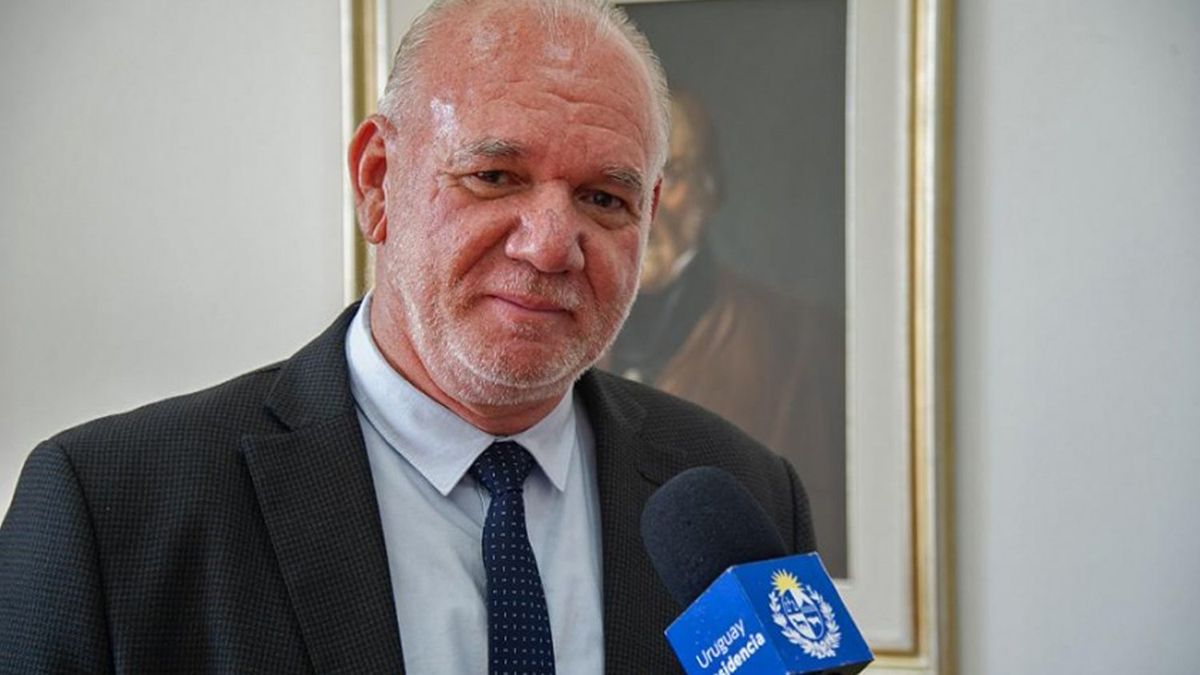– Uruguay is a country that no power supply difficulties. I am not telling you that we are fine because it costs a lot of resources to have to generate energy with fossil fuels, compared to our matrix almost 100% renewable. This, based on the fact that the lakes must be taken care of because they constitute the battery of the system, and the lack of rain means that when we turbinate those lakes go down and are not replenished; therefore, we have to resort to fossil energy.
But we do not foresee any difficulties immediately, neither in the short nor medium term, and therefore supply is guaranteed to the population in the same conditions of quality and continuity as always, which is why it is a peace of mind.
We are also resorting to importing from Argentina and Brazil, thanks to a regional interconnected system that is very good and works very well, and allows us to help each other between countries.
– How do electricity imports affect UTE and companies economically?
These expenses are always contemplated, and UTE is a company financially healthywith enough back to support this type of import situations, so it does not pose any financial problem for companies.
– How long do you expect the electricity import situation to last?
We do not have an exact forecast, but it appears that next month it will start to normalize. In any case, it will take a while longer, because no matter how much it rains, the rains will not be enough. The lakes, the water courses, the dams do not recover so quickly and we will have to wait a while, but we hope that we can soon overcome the drought issue, which also leaves long-term consequences in other sectors such as production.
– The situation of water deficit is increasingly recurrent and it is expected that in the coming years the summers will be dry, how does the government plan to face this “new normal” from now on?
I think what needs to be clear is that we have to move towards the renewable energy. The world needs us to emit less and less and move towards renewables. Therefore, we have to have more installed capacity in terms of renewable energy, to have to resort as little as possible —only in exceptional cases like these— to fossil generation.
In Argentina, for example, they have natural gas, which is not as polluting as oil and fuel oil, and somehow guarantees them, when the interconnections are finished, a more than abundant amount of fuel to be able to solve the problems. We will advance with renewables, they will advance with gas pipelines and, surely, we will also be able to benefit from these infrastructure works that will allow us to have enough gas to supply ourselves and, instead of burning fossil fuel, to be able to burn Argentine natural gas.
– Do you have concrete plans in this regard?
We have a horizon and a roadmap, thinking that towards the end of this decade, between 2026 and 2028, we will be adding more installed capacity to our generation park. Surely we are going to advance by the solarwhich is the one with the cheapest cost.
Regarding investments, will they continue to incorporate private actors into the energy system?
Yes, definitely. Power generation in Uruguay is demonopolized: the state electricity company has a monopoly on distribution and transmission, and production has been de-monopolized since the late 1990s. In this sense, the idea is that the incorporation of investments is by private actors.
The price of fuel, another point of debate
– Recently, some criticism has reappeared regarding the value of fuel in Uruguay. What is your opinion regarding the complaints about high rates?
We have tried to correct the prices since we took office with the minister Omar Paganini at the head of MIEM in 2020, trying to make as transparent as possible the liquid fuels cost chain in such a way that it has a positive impact on the pump’s price.
What happened is that there was a pandemic that caused prices to plummet and then rise to historical values, and a war that strongly affects the energy sources of Europe. And all this means that we are in a very volatile world in terms of the price of fuel, and Uruguay is a price taker: we take the value of the international market and that is what, after the tax burden, we pass on to the user. For this reason, the differences, especially when compared with the productive sector of the region, are high. But if we compare ourselves with the world, we are aligned.
– And about free import orders?
Free importation is a very old discussion in Uruguay. We are a country that has some public monopolies and fuel is one of them, but the conditions are not given political conditions of votes in Parliament for this demonopolization to take place. Therefore, we have to deal with what we have, which is to sell with the Import Parity Price (PPI). It is true that it has a high tax burden that makes it a little more expensive, and that is perhaps the underlying discussion, but it is not possible today to think about those reductions.
It’s all a very long discussion. What we have done with this government is to try to cushion the impact of very strong rises in the price, we have approved those losses with resources from the oil company, and when we have had to go down, we have done so.
– If there were the votes, would it be an issue on which the government would move forward?
It’s already been dealt withThe governing coalition did not reach a majority what is needed to do it. There are parties like mine (the Colorado party) that do not match this criteria of demonopolization, and there are others that do, but the votes are not there. It is a major issue. It is not an issue that is on the political agenda either, it has already happened and it was no longer possible.
– Even when demonopolization is one of the pending points for Uruguay’s entry into the Trans-Pacific Agreement to be considered?
It’s a theme. The fuel would not be a problem as it could be in other sectors, but there are not so many. Uruguay has managed the monopoly well
Source: Ambito




